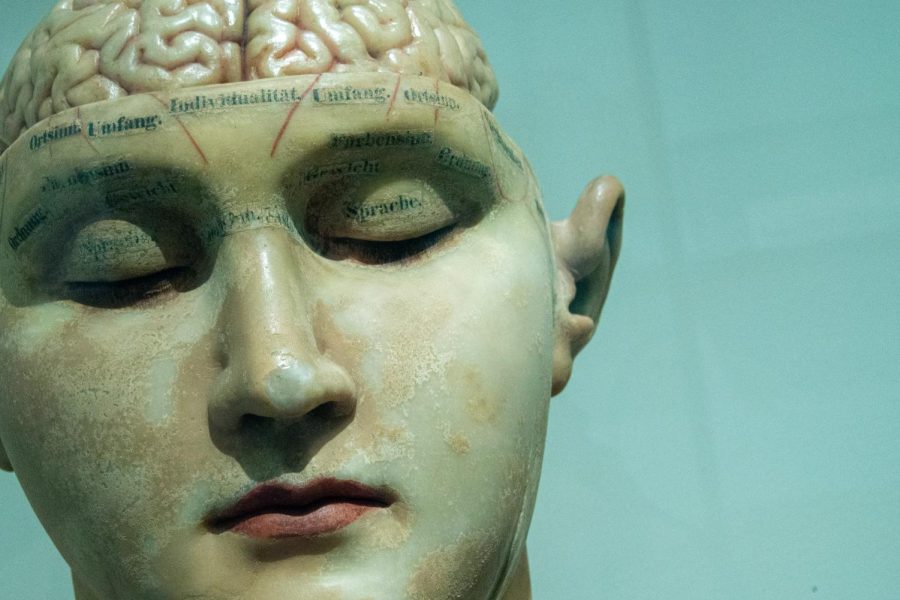Who Are You, Really?
May 10, 2022
When I go to a party with Mia, she tends to greet people in an unusual way: “Hey, what’s your MBTI?”
Mia is referring to the Myers Briggs Type Index (MBTI), a personality classification type to evaluate a person. Sometimes Mia’s habit helps her quickly distinguish who she wants to be friendly with — and who she might want to avoid in a new situation.
I think there is nothing wrong with using the MBTI to make friends. After all, everyone has their particular criteria for judging friendship. The MBTI, which classifies people by summarizing their thinking processes, can help people gauge who their friends might be and help them understand themselves better.
My other friend Rina doesn’t think the MBTI is so great. At the party a year ago, Rina joked that the personality classification test was a superstition of the new era. This made Mia not talk to Rina for a whole year.
So what is MBTI?
The MBTI is a questionnaire of personality typology that was invented more than a century ago. Its prototype was created by a mother and daughter team, Katherine Cook Briggs and Isabel Briggs Myers, who wanted to pursue marriage happiness. After reading Jung’s psychology published in 1923, the mother and the daughter upgraded the MBTI model according to Jung’s ideas. After World War II, the MBTI was improved into what it is today with the help of employees of the educational examination service center.
Advantages of MBTI
One advantage of the MBTI is that it can help people better understand their personality characteristics. In order for the test results to be meaningful, the tested person needs to be highly honest in doing the personality test. Therefore, when the tested people seriously think about each question, they increase their understanding of themselves. The MBTI is not a binary test. It divides the dimensions of personality into four parts according to the model of type dynamics: attitude (extroversion/introversion) and function (sensing/intuition and thinking/feeling). And in cognitive function, the use of each function is different. For example, my friend Rina’s personality is ENFP, so she is more willing to spend more energy feeling and dealing with the external world. She usually perceives the surrounding world through intuition, makes decisions by feeling, and responds to events in the outer world through perception. Among the most popular personality type questionnaires, the MBTI is comparatively more scientific, but it has some weaknesses too.
Disadvantages of MBTI
Overy the years, the psychology field has debated the accuracy of MBTI. While short and comprehensive words used in the test result attract ordinary people’s attention, experts find these words to be comparatively vague. The indistinct word choice can lead to the Barnum effect, in which people feel their personality is accurately described, but other people can also use the description. Also, unlike the 16PF questionnaire or the personality assessment inventory, the MBTI doesn’t have a validity scale to measure the exaggeration of the tested person. Thus, people might be dishonest during their answers because of social expectations.
Pingree student opinions
Some Pingree students have done the MBTI questionnaire in the past, and they have various opinions about the usefulness and accuracy of the questionnaire.
“I think it’s not accurate,” says Sean, who learned that he was an INTP. “It’s just a new age zodiac sign thing. Although some parts are true about me, overall I don’t think I‘m an INTP. And I also don’t want to be labeled by four letters; that’s superficial.”
Frankie said, “The questionnaire is accurate, and I feel more comfortable after knowing more about myself. But unless people asked about the MBTI, I usually don’t bring up what personality type I am.”
“To me personally, I think it’s accurate,” says Kelly, an ISTJ. “It fits my personality. But I won’t dedicate my life based on the personality type test. But to an extent, I think it fits me.“
For many people, The MBTI is a controversial personality test. Although its accuracy is debated among psychologists, people can still learn some parts of themselves from the test. Here is the link for the MBTI test in case if you are interested about your personality type.


